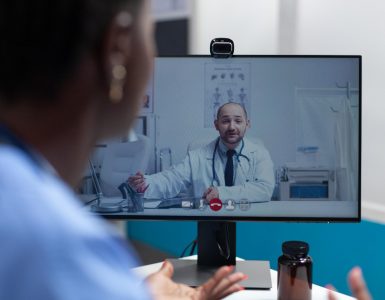As the landscape of philanthropy changes following the COVID-19 pandemic, this commentary considers the future of endowed chairs in academic medicine in the light of articles by Thorndyke and colleagues and by Chin-Hong and colleagues in this issue. The authors evaluate the traditional allocation of endowed chairs, which can attract and retain talented faculty and can support focused research far into the future, while other gifts may support more timely concerns, but over a shorter term. The authors weigh the benefits and challenges of allocation of endowed chairs, such as the need to improve representation, diversity, equity, and inclusion, and opportunities to support early-career investigators or research teams. New endowed positions can be challenging to establish, as there may be competition with learner scholarship programs and programmatic support. Leadership turnover of university presidents and deans can slow philanthropic growth and make recruitment and fundraising for new positions even more challenging. The authors discuss the balance of institutional priorities and ways to utilize endowed chairs for scholarship in evolving areas of medicine and science. They further suggest working with donors to develop more adaptable gift agreements, which will allow institutions to transform endowed positions to meet changing needs while preserving the intentions of the donor. To maintain endowed chairs as a worthwhile and relevant outlet for philanthropy, one which donors will enthusiastically support, it is essential to align them with the changing needs of the institution and the broader environment of academic medicine.As the landscape of philanthropy changes following the COVID-19 pandemic, this commentary considers the future of endowed chairs in academic medicine in the light of articles by Thorndyke and colleagues and by Chin-Hong and colleagues in this issue. The authors evaluate the traditional allocation of endowed chairs, which can attract and retain talented faculty and can support focused research far into the future, while other gifts may support more timely concerns, but over a shorter term. The authors weigh the benefits and challenges of allocation of endowed chairs, such as the need to improve representation, diversity, equity, and inclusion, and opportunities to support early-career investigators or research teams. New endowed positions can be challenging to establish, as there may be competition with learner scholarship programs and programmatic support. Leadership turnover of university presidents and deans can slow philanthropic growth and make recruitment and fundraising for new positions even more challenging. The authors discuss the balance of institutional priorities and ways to utilize endowed chairs for scholarship in evolving areas of medicine and science. They further suggest working with donors to develop more adaptable gift agreements, which will allow institutions to transform endowed positions to meet changing needs while preserving the intentions of the donor. To maintain endowed chairs as a worthwhile and relevant outlet for philanthropy, one which donors will enthusiastically support, it is essential to align them with the changing needs of the institution and the broader environment of academic medicine.Copyright © 2022 by the Association of American Medical Colleges
Ook interessant voor je
Veranderende markttrends transformeren hoe farmamarketeers patiënten en zorgverleners vinden, targeten en betrekken
Veranderende markttrends transformeren hoe farmamarketeers patiënten en zorgverleners vinden Uit de Healthcare Marketers Trend Survey blijkt dat er, wat betreft kanaalgebruik, meer groei plaatsvond in nieuwere tactieken...
53 x gelezen
Digitalisering kan zorgsector in 2028 minimaal €1,3 miljard netto opleveren
Digitalisering kan zorgsector in 2028 minimaal €1,3 miljard netto opleveren Digitalisering kan de komende jaren een grote financiële impuls geven aan de gezondheidszorg. Volgens een rapport van strategisch adviesbureau...
80 x gelezen
AstraZeneca’s Tagrisso approved by FDA for lung cancer treatment
Tagrisso approved by FDA for lung cancer treatment The approval followed a Priority Review by the FDA and was based on results from the FLAURA2 phase 3 trial, which were published in The New England Journal of Medicine...
55 x gelezen










